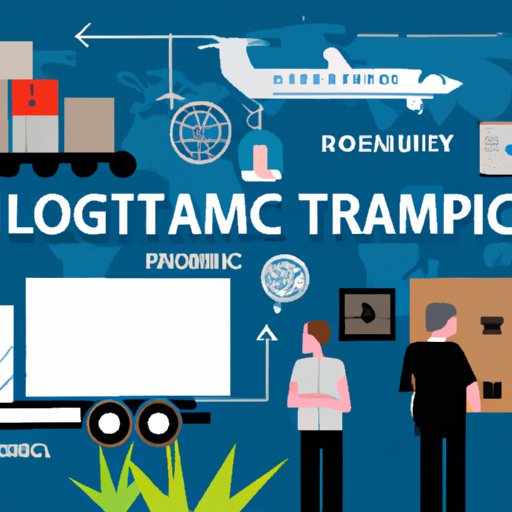
Introduction: Overview of the Logistics Industry and the Importance of Having a Business Plan
The logistics industry is a rapidly growing sector that is essential for businesses to move goods from one place to another. According to the U.S. Bureau of Labor Statistics, employment in the logistics and transportation sector is projected to grow by 10 percent between 2018 and 2028. This growth is driven by the increasing demand for efficient delivery services and the need for companies to stay competitive in a global market.
Starting a logistics company requires a solid business plan that outlines the goals and objectives of the business. A well-crafted business plan should include a market analysis, financial projections, competitive advantages, and a strategy for marketing and sales. It’s also important to consider the different segments of the logistics industry, such as freight forwarding, warehousing, and third-party logistics, when developing the business plan.
Research the Logistics Industry
Before starting a logistics company, it’s important to thoroughly research the industry. Understanding the different segments of the industry, key players, and trends will help inform the business plan and ensure the success of the venture.
Understand the Different Segments of the Industry
The logistics industry is comprised of several different segments, including freight forwarding, warehousing, fulfillment, and third-party logistics. Freight forwarding involves arranging for the transportation of goods from one place to another. Warehousing involves storing goods in a secure location until they are ready to be shipped. Fulfillment involves packing and shipping orders on behalf of customers. Third-party logistics involves outsourcing the management of the supply chain to a third-party provider.
Identify Key Players and Trends That Are Shaping the Market
It’s also important to identify the key players in the logistics industry and understand the trends that are shaping the market. According to a report by Allied Market Research, the global logistics market is expected to reach $15.5 trillion by 2023, with e-commerce driving much of the growth. Understanding these trends can help inform the business plan and ensure the success of the venture.
Develop a Business Plan
Developing a business plan is essential for any venture, but particularly for a logistics company. The business plan should include the following components:
Define Goals
The first step in creating a business plan is to define the goals and objectives of the venture. What are the short-term and long-term goals of the business? How will the company measure success? Answering these questions will help inform the rest of the business plan.
Target Market
The next step is to identify the target market. Who are the customers that the company will serve? What types of services will the company offer? Defining the target market and services offered will help the company focus its efforts and ensure the success of the venture.
Financial Projections
Creating financial projections is an essential component of the business plan. Financial projections should include an income statement, cash flow statement, balance sheet, and break-even analysis. These projections will help the company determine if the venture is viable and provide a roadmap for success.
Competitive Advantages
Finally, it’s important to identify the competitive advantages that the company has over its competitors. What makes the company unique? What sets it apart from other logistics companies? Identifying the competitive advantages will help the company stand out in the market.
Secure Funding
Once the business plan is complete, the next step is to secure funding for the venture. There are several financing options available, such as small business loans, venture capital, and angel investors. Each option has its own advantages and disadvantages, so it’s important to evaluate them carefully before making a decision.
Hire the Right Team
It’s essential to hire experienced logistics professionals to manage operations, sales, marketing, and customer service. Recruiting the right team is key to the success of the venture. It’s also important to create a culture of collaboration and innovation to ensure that the team works together seamlessly.
Utilize Technology
Technology is an essential component of any logistics business. Implementing efficient systems for tracking shipments, managing inventory, and streamlining other processes can significantly reduce costs and improve customer satisfaction. Utilizing the latest technology can help the company stay competitive in the market.
Conclusion: Summary of Tips for Starting a Successful Logistics Company
Starting a successful logistics company requires careful planning and preparation. It’s essential to research the industry, develop a business plan, secure financing, hire the right team, and utilize technology. By taking the time to plan ahead, entrepreneurs can set their ventures up for long-term success.
(Note: Is this article not meeting your expectations? Do you have knowledge or insights to share? Unlock new opportunities and expand your reach by joining our authors team. Click Registration to join us and share your expertise with our readers.)
